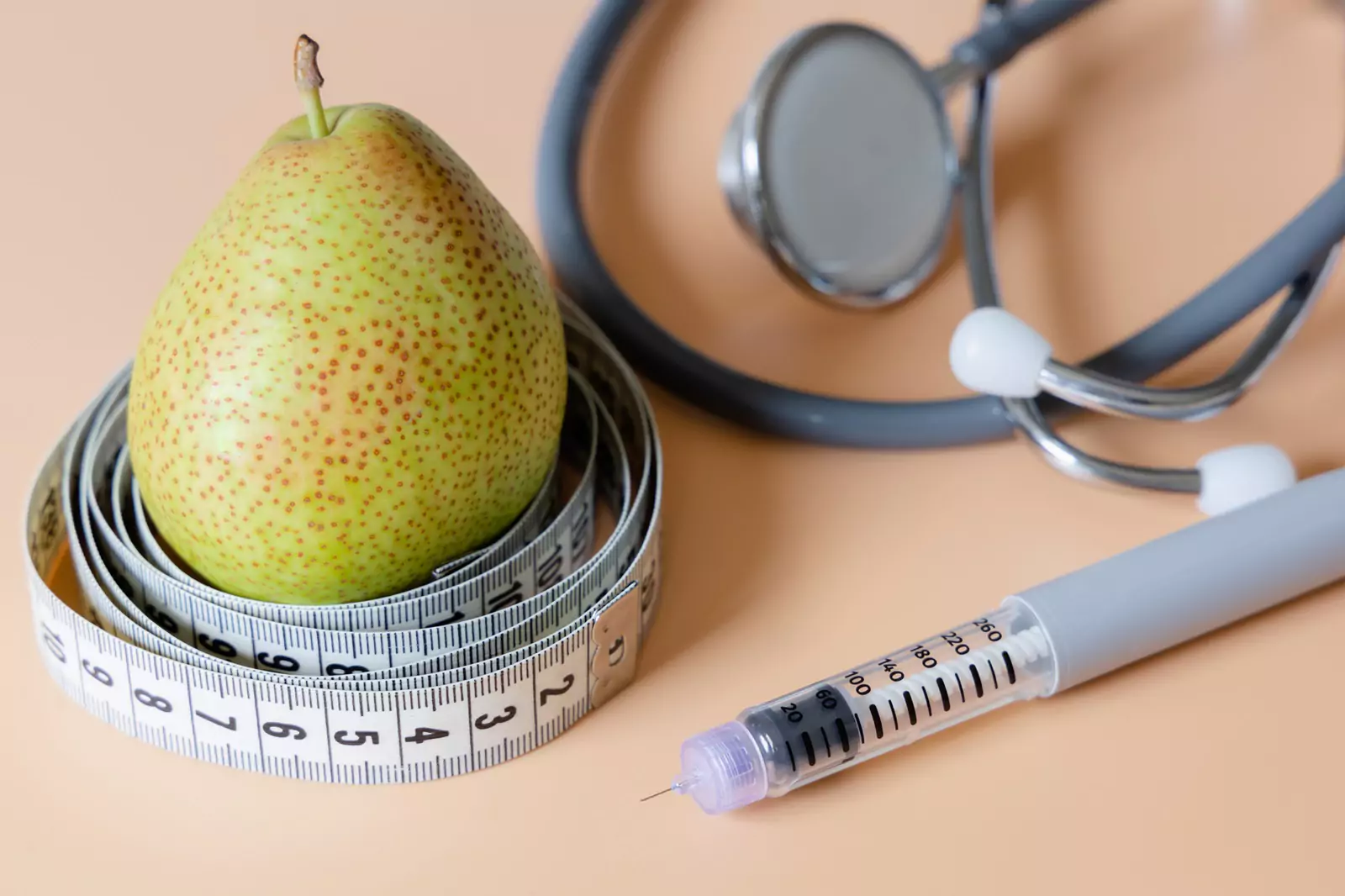
UP TO 40% OFF SITEWIDE






Are Sweet Potato's good for you if you have Diabetes?


Table of Contents
- Nutrition Of The Sweet Potato
- Reasons Why Sweet Potatoes Are Good for Diabetics Low Glycemic Index
- High Fiber Content
- Rich in Nutrients
- Low in Calories
- Do Sweet Potatoes Have an Effect on Blood Sugar?
- Best Ways to Serve Sweet Potatoes
- Are Sweet Potato Chips Good For Diabetics?
- Different Types of Sweet Potatoes
- Conclusion
- About The Author
If you have diabetes, you may often wonder if the food you consume will affect your blood sugar levels. Sweet potatoes are known for their sweet taste and nutritious benefits, but do they have an effect on your diabetes? In this article, we will explore the nutritional value of sweet potatoes and how it may affect those with diabetes, as well as the best ways to serve them.
Nutrition Of The Sweet Potato
Sweet potatoes are a tasty and nutritious food choice for those living with diabetes. They are low on the glycemic index and packed with essential vitamins and minerals. Sweet potatoes can be enjoyed in a variety of dishes, making them a great addition to any diabetic diet. When it comes to nutrition, sweet potatoes are an excellent choice for diabetics.
They have a low glycemic index, which means that they are digested slowly, and do not cause a rapid spike in blood sugar levels. This makes them a great option for managing blood sugar levels, as well as keeping them stable throughout the day. Sweet potatoes are also rich in essential vitamins and minerals such as vitamin A, C, and E, as well as magnesium, potassium, and iron.
Vitamin A is an important nutrient for maintaining good vision, healthy skin, and proper immune function. Sweet potatoes are a great source of beta-carotene, which is converted to vitamin A in the body. Vitamin A is also essential for keeping healthy cell membranes and for preventing many cancerous cells from forming. When consumed as part of a healthy diabetic diet, sweet potatoes can provide numerous benefits for people with diabetes.
They are an excellent source of numerous vitamins and minerals, and their high fiber content can help to regulate blood sugar levels, improve cholesterol levels, and reduce inflammation. Sweet potatoes are also rich in fiber which is beneficial for weight management and weight loss, They also slow down the absorption of carbohydrates in the body, which can help to prevent blood sugar spikes.
As long as sweet potatoes are consumed in moderation and alongside other healthful foods, they can be an excellent addition to a diabetic diet. In conclusion, sweet potatoes are a delicious and nutritious option for people with diabetes. They are low on the glycemic index, packed with essential vitamins and minerals, and high in fiber.
They can be enjoyed in a variety of dishes and are a great addition to any diabetic diet. It's always important to consult with a healthcare professional before making any drastic changes in your diet.
Reasons Why Sweet Potatoes Are Good for Diabetics Low Glycemic Index
Sweet potatoes have a low glycemic index (GI) value, which means that they are digested slowly and do not cause a rapid spike in blood sugar levels. The glycemic index (GI) is a scale that ranks carbohydrates based on how quickly and how much they raise blood sugar levels after eating.
Foods with a high GI value are quickly digested, and absorbed, and cause a rapid spike in blood sugar levels, while foods with a low GI value are digested and absorbed more slowly and cause a slower, more gradual increase in blood sugar levels. Sweet potatoes have a GI value of around 40, which is considered to be low. Eating low-GI foods like sweet potatoes can be beneficial for people with diabetes as it helps to keep blood sugar levels stable.
When blood sugar levels spike and then quickly fall, it can lead to feelings of fatigue, irritability, and hunger. By eating low-GI foods, people with diabetes can help prevent these fluctuations in blood sugar levels and maintain a more stable blood sugar level. Moreover, low-GI foods can also help to reduce the risk of developing diabetes, as well as help with weight management.
It's important to note that the glycemic index is not the only factor to consider when choosing foods for diabetes management, and it's always best to consult with a healthcare professional before making any changes to your diet.
High Fiber Content
Sweet potatoes are a good source of fiber, which can have multiple benefits for people with diabetes. Fiber is important for maintaining good digestion and preventing constipation, as it helps to move food through the digestive system. Eating foods that are high in fiber can also help to keep you feeling full for longer, which can help to prevent overeating and weight gain.
This can be especially beneficial for people with diabetes, as excess weight can exacerbate the condition and make it harder to manage blood sugar levels. Fiber also plays a key role in blood sugar control, as it slows down the absorption of sugar in the bloodstream. This means that when you eat a food that is high in fiber, the sugar is released into your bloodstream more slowly, preventing blood sugar spikes.
This is also beneficial for people with diabetes, as it helps them to keep their blood sugar levels stable. Fiber also helps in controlling cholesterol level and reducing the risk of heart disease which is a common complication in people with diabetes. Fiber also helps in maintaining healthy gut bacteria which is important for overall health.
It's important to note that sweet potatoes should be consumed in moderation, as they still contain carbohydrates and can raise blood sugar levels. It's always important to consult with a healthcare professional before making any changes to your diet.
Rich in Nutrients
Sweet potatoes are a nutrient-dense food that provides a variety of essential vitamins and minerals. They are particularly rich in vitamin A, vitamin C, potassium, and magnesium. Here's a more detailed explanation of how these nutrients benefit overall health and how they are particularly beneficial for people with diabetes:
- Vitamin A: Sweet potatoes are an excellent source of vitamin A, which is important for maintaining healthy vision, immune function, and skin health. Vitamin A can also help to regulate blood sugar levels, making it beneficial for people with diabetes.
- Vitamin C: Sweet potatoes are also a good source of vitamin C, which is essential for maintaining healthy skin, blood vessels, and bones. Vitamin C is also an antioxidant, which can help to protect the body against damage from free radicals.
- Potassium: Sweet potatoes are a good source of potassium, which is an important mineral that helps to regulate blood pressure and heart function. Potassium can also help to lower the risk of heart disease and stroke, which are major complications of diabetes.
- Magnesium: Sweet potatoes are rich in magnesium, which is an important mineral that helps to regulate blood sugar levels and insulin sensitivity. Magnesium also helps to regulate muscle and nerve function and can help to lower the risk of heart disease.
By consuming sweet potatoes, people with diabetes can benefit from these essential vitamins and minerals that will not only improve their blood sugar control but also protect them from other health conditions and improve their overall health. It's important to note that sweet potatoes should be consumed in moderation and as part of a balanced diet.
Low in Calories
Sweet potatoes are a great option for people with diabetes who are looking to manage their weight. One medium-sized sweet potato contains around 103 calories, which is relatively low compared to many other types of starchy foods such as white potatoes or rice. Consuming sweet potatoes in place of higher-calorie foods can help to reduce overall calorie intake and promote weight loss.
Additionally, sweet potatoes are a good source of fiber which can help to keep you feeling full and satisfied for longer, which can aid in weight management. Fiber also slows down the absorption of carbohydrates in the body, which can help to prevent blood sugar spikes. Another benefit of sweet potatoes being low in calories is that they do not cause a rapid spike in blood sugar levels, thanks to their low glycemic index.
This makes them a great option for people with diabetes who are looking to manage their blood sugar levels. It's important to note that portion control is also important in weight management, as consuming too much of anything can lead to weight gain. Also, it's always important to consult with a healthcare professional before making any drastic changes in your diet.
Do Sweet Potatoes Have an Effect on Blood Sugar?
When it comes to those with diabetes, sweet potatoes are a great option to consider. This is because they have a low glycemic index, which is the scientific measure of how quickly your blood sugar rises when you eat something. Foods with a low glycemic index are digested and absorbed slowly, which means that they won’t cause a spike in your blood sugar levels.
When compared to other starchy vegetables, such as white potatoes, sweet potatoes are even more beneficial. This is because sweet potatoes are higher in fiber and have a lower glycemic index than white potatoes. This means that they will take longer to digest and be absorbed by your body, and therefore will not cause a spike in your blood sugar levels.
Not only are sweet potatoes beneficial for those with diabetes, but they are also a great source of essential vitamins and minerals, including potassium, manganese, vitamin A, and vitamin C. Eating sweet potatoes can also help you to get your essential carbs and minerals each day, as sweet potatoes are also a great source of complex carbohydrates.
The bottom line is that if you have diabetes, sweet potatoes are a great option for you. Not only do they have a low glycemic index, but they are also a good source of vitamins, minerals, and complex carbohydrates. Sweet potatoes are also easy to prepare and can be enjoyed in a variety of ways.
Best Ways to Serve Sweet Potatoes
When preparing sweet potatoes, it is important to choose the right varieties and cooking methods. Light-colored sweet potatoes are usually the most nutritious varieties; they are said to contain more nutrients than those with darker flesh. When cooking sweet potatoes, it is best to opt for baking, roasting, or grilling instead of boiling and mashing, as boiling can cause the sweet potato to lose some of its nutritional value.
In addition to the right varieties and cooking methods, it is important to serve sweet potatoes in ways that do not overload them with unhealthy fats and added sugars. For example, while many enjoy a classic sweet potato casserole, this dish often has a lot of added sugars and butter. Instead, opt for healthier toppings like nuts, seeds, yogurt, or fresh herbs.
For a delicious side dish, try thinly slicing sweet potatoes and adding them to a salad. They are also a great replacement for traditional potatoes in French fries, hash browns, and stuffed potatoes. Sweet potatoes can also be used in quiches, soups, casseroles, and as a substitute for regular mashed potatoes.
By following the right tips for preparing sweet potatoes, you can enjoy this delicious, nutritious, and diabetes-friendly food. Sweet potatoes are a healthy option for diabetics and can help to fuel your body and mind.
Are Sweet Potato Chips Good For Diabetics?
When it comes to sweet potato chips, it's important to consider how they are prepared and the portion size. Many sweet potato chips are deep-fried and processed, which can increase the calorie and fat content, making it less healthy. Additionally, most sweet potato chips are high in sodium, which can be an issue for people with diabetes as it can raise blood pressure.
So, if you want to enjoy sweet potato chips, it's best to make them at home using minimal oil and salt, or look for brands that have a lower calorie, fat, and sodium content. And also, it's important to watch your portion size, as eating too many sweet potato chips can still lead to an increase in blood sugar levels. In summary, sweet potatoes are a good food option for people with diabetes, but sweet potato chips may not be the best choice if they are deep-fried and high in sodium. It's best to consider how the chips are prepared and the serving size before consuming them.
Different Types of Sweet Potatoes
One type of sweet potato that is beneficial for diabetics is the Japanese variety. This type of sweet potato is high in fiber, which helps maintain blood sugar levels. Japanese sweet potatoes are also an excellent source of potassium, which helps regulate blood pressure. In addition, they provide vitamin B6 and magnesium, which can help reduce inflammation and reduce the risk of diabetes.
Another type of sweet potato that is good for diabetics is the Beauregard variety. This variety is packed with antioxidants, which can help reduce the risk of many chronic diseases. Beauregard sweet potatoes also contain vitamin C and folate, which are beneficial for maintaining healthy blood sugar levels. Finally, the Okinawan sweet potato is another type of sweet potato that is recommended for diabetics.
This variety is high in dietary fiber, which helps regulate the body's insulin response. In addition, Okinawan sweet potatoes are rich in antioxidants, which can help prevent chronic diseases. To summarize, sweet potatoes are generally healthy for diabetics.
However, it's important to understand the different varieties of sweet potatoes and how they affect blood sugar levels. Japanese, Beauregard and Okinawan sweet potatoes are all beneficial for diabetics and can help in managing the disease.
Conclusion
In conclusion, sweet potatoes are an incredibly nutritious and delicious root vegetable that can be enjoyed by people with diabetes and those without it alike. Sweet potatoes have a high nutritional value due to their content of fiber, vitamins A and C, and important minerals. They are an excellent source of energy, help regulate blood sugar levels, and provide important dietary fiber to help maintain good digestive health.
Moreover, there are a variety of different types of sweet potatoes and many different ways to serve them for optimal flavor. Therefore, sweet potatoes can be an excellent addition to a well-balanced diet for those with diabetes, as well as others looking to improve their overall health.
About The Author
Meet Dr. Ahmet Ergin, a highly skilled and dedicated endocrinologist with a passion for diabetes care. Dr. Ergin's journey in the medical field began with earning his medical degree with honors from Marmara University School of Medicine in Istanbul, Turkey. He then went on to complete his internal medicine residency and endocrinology fellowship at Cleveland Clinic, one of the top medical centers in the United States, located in Cleveland, Ohio.
With a wealth of knowledge and experience in his field, Dr. Ergin is board-certified in Internal Medicine, Endocrinology, Diabetes, and Metabolism, making him a respected and highly qualified physician. He is also a certified diabetes education specialist, author of the book "The Ultimate Diabetes Book" and the founder of the SugarMD YouTube channel, where he shares valuable insights and information on diabetes management and care. Currently, Dr. Ergin practices in Port Saint Lucie, FL, where he provides exceptional care to his patients and helps them to effectively manage their diabetes.
It is important to note that the information on diseases and treatments provided on this website is for general guidance only and should never be considered a substitute for the advice provided by a qualified healthcare professional. Always seek the advice of your physician, health provider, or other qualified healthcare professional with any questions you may have regarding your health.
Written By Dr. Ahmet Ergin
466 total articles
Meet Dr. Ahmet Ergin, a highly skilled and dedicated endocrinologist with a passion for diabetes care. Dr. Ergin earned his medical degree with honors from Marmara University in Istanbul. He completed internal medicine residency and endocrinology fellowship at Cleveland Clinic. Dr. Ergin is board-certified in Internal Medicine, Endocrinology, Diabetes, and Metabolism due to his vast medical expertise. He's a certified diabetes educator, author of “The Ultimate Diabetes Book,” and founder of “the SugarMD YouTube channel.” Dr. Ergin offers exceptional diabetes care to his patients in Port Saint Lucie, FL, helping them manage effectively. For a closer look into his insights and experiences, connect with Dr. Ahmet Ergin on LinkedIn, Instagram, and YouTube.”
Disclaimer: These statements have not been evaluated by the Food and Drug Administration. Information on this website isn't intended to treat, cure or prevent any disease. Discuss with your doctor and do not self-treat.
Products











